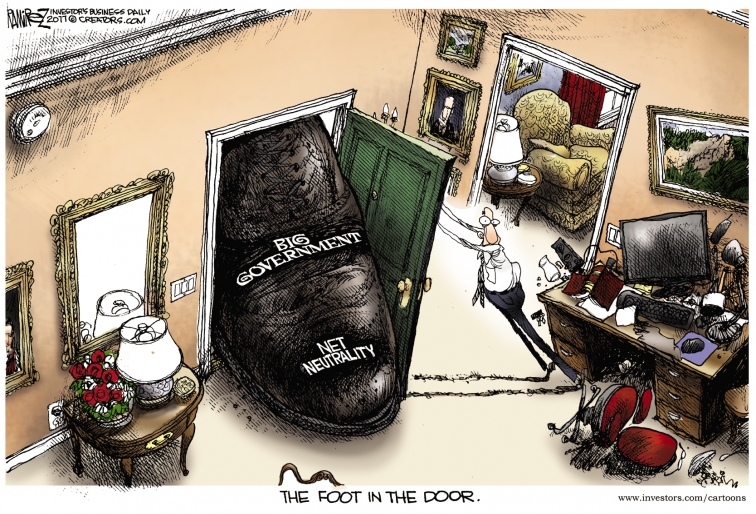For the past three years, those of us who eat, sleep and breathe the principles of limited government and free enterprise have been banging our heads against the wall because of the devastating and rampant overreach of executive departments and agencies in the Obama Administration.
The Environmental Protection Agency (EPA)… the National Labor Relations Board (NLRB)… the Department of Justice (DOJ)… Enough said.
But perhaps there has been no agency more guilty of abusing its power and imposing its regulatory overreach than the Federal Communications Commission (FCC). After all, it is the FCC that unilaterally – by a 3-2 party-line vote – imposed so-called “Net Neutrality” regulations against a bipartisan majority in Congress, a unanimous federal court of appeals and 2-1 public opinion. It is the FCC that, despite acknowledging a national spectrum crisis as more and more consumers use smart phones and tablet computers, continually works to block any and all productive efforts to relieve said crisis.
So it was refreshing to read earlier today that AT&T’s CEO Randall Stephenson is calling out the FCC’s overreach, charging that the Commission is “intent on picking winners and losers rather than letting these markets work.”
For too long the FCC has interfered with the free market, which has created an unlevel playing field that unfairly props up politically-favored companies less likely to invest their own capital in new job-creating and economy-enhancing infrastructure at the expense of others that will.
And, that’s precisely why Congress must act, not only to refrain from granting the FCC’s request for additional flexibility on spectrum auction authority, but also to tighten the reins on the FCC in order to prevent it from further skewing the wireless market.
Instead of permitting the FCC to, by definition, pick “winners and losers” in the wireless marketplace by unfairly limiting and excluding certain companies from participating in spectrum auctions, Congress must pass legislation that that will facilitate the proper and fair functioning of spectrum auctions that are open to all willing buyers.
That the FCC thinks otherwise, coupled with its recent history of abusive regulatory overreach, should spark a long overdue and serious discussion about clearly defining its proper authority once and for all.


 CFIF Freedom Line Blog RSS Feed
CFIF Freedom Line Blog RSS Feed CFIF on Twitter
CFIF on Twitter CFIF on YouTube
CFIF on YouTube